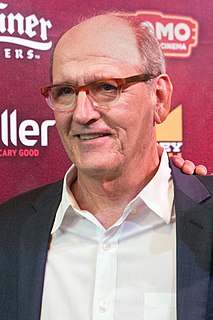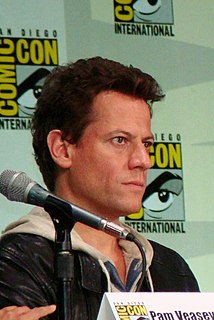A Quote by Richard Roxburgh
You have to sort of see the way that the character behaves, and what the character says and does, and claim it in the same way that you claim anything, really.
Related Quotes
When I'm writing, I try to have the mask of my character on as I'm walking through the world. When I'm not at my desk, the rest of the time, I try to stay in that character and see the world the way that character would It's almost like method acting in a way — keeping the character close the way the actor keeps a script close and always tries to be in character.
It really depends on what the screenplay is asking of you, and what your responsibility is to that character. You have the author's intent to deal with, you have the filmmaker's vision, and then you have your own wants, desires and needs for the character. It's collaborative. But I knew, right off the bat, that there was no way to go into some sort of pink-haired, clown-nosed character with Ronald McDonald shoes.
It's really an organic sort of process. You start off with the character on the page. You fall in love with that character and you have to represent that character well and I think it's just an evolution there. Using the accent and speaking the lines with the accent in fact opens the door to who the character really is.
My work sanitizes it (emotion) but it is also symbolic of commercial art sanitizing human feelings. I think it can be read that way.... People mistake the character of line for the character of art. But it's really the position of line that's important, or the position of anything, any contrast, not the character of it.
I really feel our job as actors is to find a human experience in the character. So, for me, genre comes second; it's about script and the emotional journey of that character. Genre definitely has an impact, but it has more of an impact on the way the character is expressed. We all have the same core emotions of love, jealousy, rage - it's just how they're expressed.
The problem is if you play enough of parts in films that are sort of more financial products than anything or films in which the girl is a thankless, thoughtless, underwritten character along the way, you're no longer the person who had something fresh or vital to offer. I think it really does start to diminish some part of you, to put yourself through things you don't really want to be doing.



































